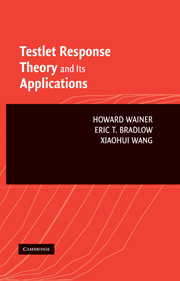Epilogue
Published online by Cambridge University Press: 08 January 2010
Summary
Jephthah then called together the men of Gilead and fought against Ephraim. The Gileadites struck them down because the Ephraimites had said, “You Gileadites are renegades from Ephraim and Manasseh.”
The Gileadites captured the fords of the Jordan leading to Ephraim, and whenever a survivor of Ephraim said, “Let me cross over,” the men of Gilead asked him, “Are you an Ephraimite?” If he replied, “No,” they said, “All right, say ‘Shibboleth.’ “He said, “Sibboleth,” because he could not pronounce the word correctly, they seized him and killed him at the fords of the Jordan.
Forty-two thousand Ephraimites were killed at that time.
Judges 12:4–6The bible records an early example of testing in a one-item test that was administered. It had very high stakes, and no validity or reliability studies were reported in support of its conclusions. The author of Judges did not record what proportion of those slain were, in fact, Ephraimites, and how many were unfortunate Gileadites with a speech impediment. Happily the science of testing has advanced considerably in the three thousand odd years since Jephthah's struggle with Ephraim.
Yet, we can see that the idea of a test with associated consequences is a very old one indeed. In the more than three millennia since it is not surprising that there have been modifications in, and improvements to, the practice of testing, the theory of testing, and the ethics of testing. But the soul of the idea has remained the same. In this monograph, we have tried to inch this ancient art a wee bit further forward.
- Type
- Chapter
- Information
- Testlet Response Theory and Its Applications , pp. 249 - 250Publisher: Cambridge University PressPrint publication year: 2007



